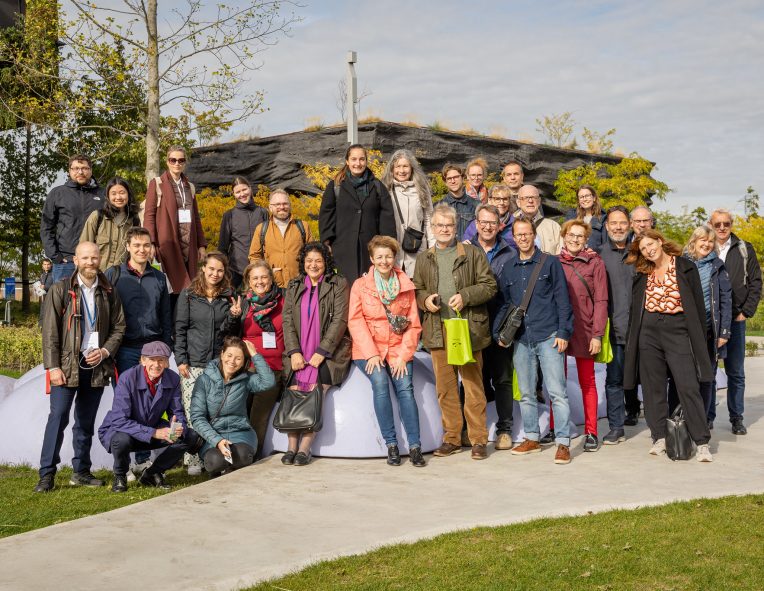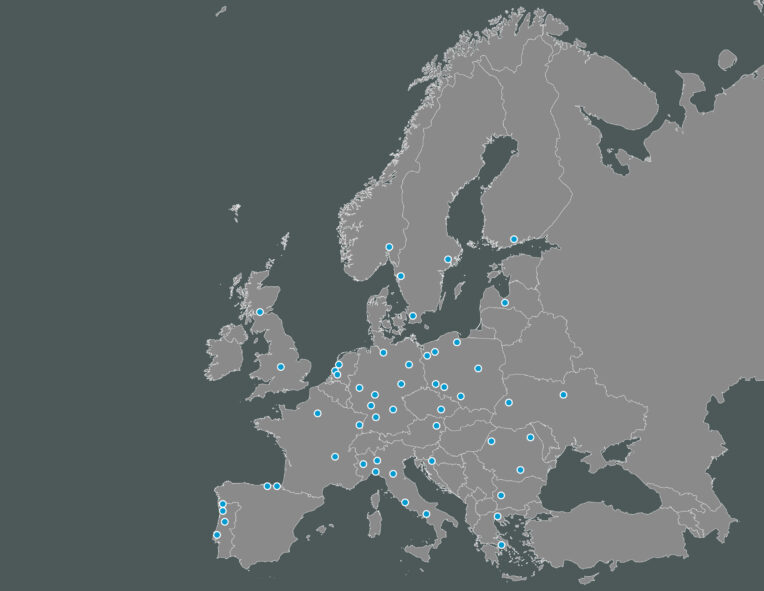The Bernd Steinacher Fellowship was established in 2010 to sustain the values and interests brought to METREX by the late Bernd Steinacher.
Bernd Steinacher was the Chief Executive Director of the Verband Region Stuttgart and the Regional Assembly, the first metropolitan Parliament of its kind to be set up in Germany. He was also President of METREX from 2004 until 2008, having served for two terms. Through Bernd’s leadership, Stuttgart established strong ties with the United States, principally through the partnership between the Verband Region Stuttgart and the Northern Virginia Regional Commission – the first region-to-region partnership between councils in Europe and North America. This enabled METREX to add a truly global dimension to its affairs.
Funded by METREX and the Verband Region Stuttgart, the values and interests that the Fellowship aims to sustain are: the value of a metropolitan dimension to European affairs; the interrelated nature of key issues and requirement for joined-up thinking at the metropolitan level; the value of Europe as an exemplar of international cooperation for a common good; networking as a means of exchanging knowledge and experience; strong personal relationships in international, European and metropolitan affairs.
The Fellowship is awarded every two years with candidates drawn from METREX member regions or areas. For information on how to apply, please contact METREX on info@eurometrex.org.
2016-18 Fellowship
Looking at metropolitan areas as Laboratories of metropolitan governance
Seeking the factors that create the conditions for successful models/systems of metropolitan and regional governance.
Fellow: Viviana Rubbo, Urban Researcher and Co-Founder of Paesaggisensibili, an independent observatory on landscape changes.
The understanding of “how the territorial reality can be aligned with the governance structures” is the goal of the many efforts undertaken so far and explored in this research. Why laboratories of metropolitan governance? Whether there is a top-down legislative framework that needs to be adapted and make it fit to the local and place-specific challenges and issues (Italian cases), or a special funding programme tailor-made for a target-region (Prague), or a voluntary and pragmatic political interest to achieve cooperation and play together (Helsinki region and Lyon Metropolitan Pole), each territory showcases an attempt, a strategy, a way forward, to deal with major territorial questions that call for radical changes.
2019-21 Fellowship
The influence of crises on housing policies
Fellow: David Dooghe
Housing is affected to more global crises than only the housing crisis in itself. By describing the influence of three other global crises on housing and the innovations they brought forward, this research aims to broaden the understanding of policy makers in regard to the influences global crises can have on housing and housing markets. As such policy makers can create more resilient policies, which take into account the influence crises can have on housing and allows opportunities for the innovations crises can bring.
2022-2023 Fellowship
European Metropolises in Response to COVID-19 (Post)Pandemic Crisis – Recovery, Renewal and Resilience
Fellow: Dr. Kamil Glinka
The main objective of the project is to carry out a multifactorial diagnosis and analysis of the activity of metropolitan self-governments in Europe aimed at counteracting the destructive COVID-19 (post)pandemic crisis.
2024-2025 Fellowship
Fellow: Ioana Ivanov
Metropolitan areas in Europe provide various services and guide the development of the territories they encompass based on integrated development strategies and plans. Considering their increased roles and popularity in recent years, funding mechanisms must catch up, to be able to provide suitable and sustainable funding. This is particularly important to reduce the dependence on European funds, achieve self-financing, and build trust in cooperation and joint metropolitan projects. Some examples and approaches used by European countries and metropolitan areas include dedicated national funding, governmental support, metropolitan (revolving) funds, or membership fees. While existing and potential financing mechanisms depend to a large extent on governance and administrative models, common aspects can be identified. For example, a combination of fiscal autonomy, equitable cost-sharing, and grant financing can support the self-financing of metropolitan areas. The research project includes interviews and surveys with METREX Members about the different governance models they use, the competencies they cover, the funding mechanisms available to them, and what added value derives from these different mechanisms.
First outcome and reflections presented at the METREX Autumn Conference in Bucharest. Available in PDF Members Survey_FINAL



